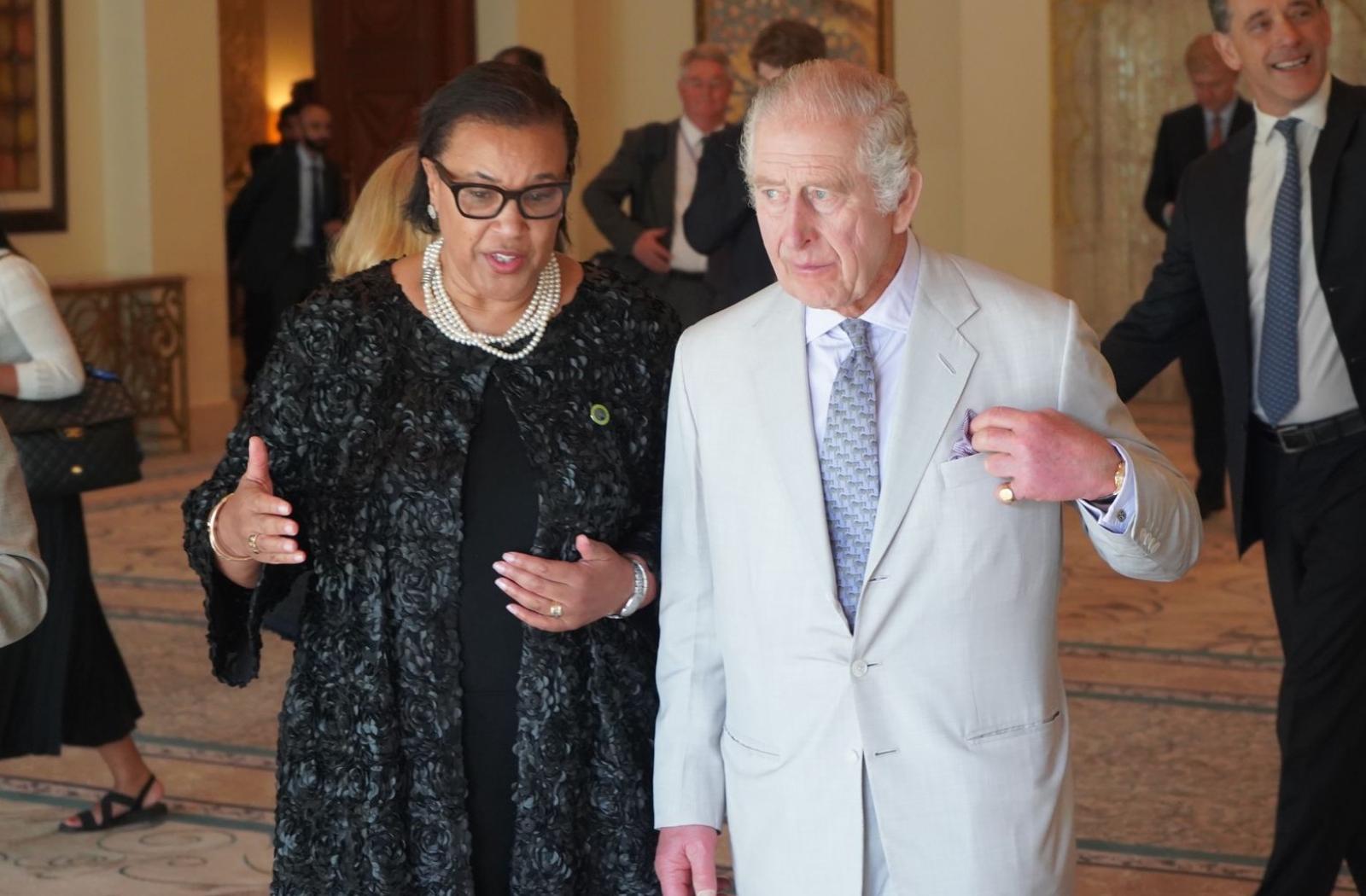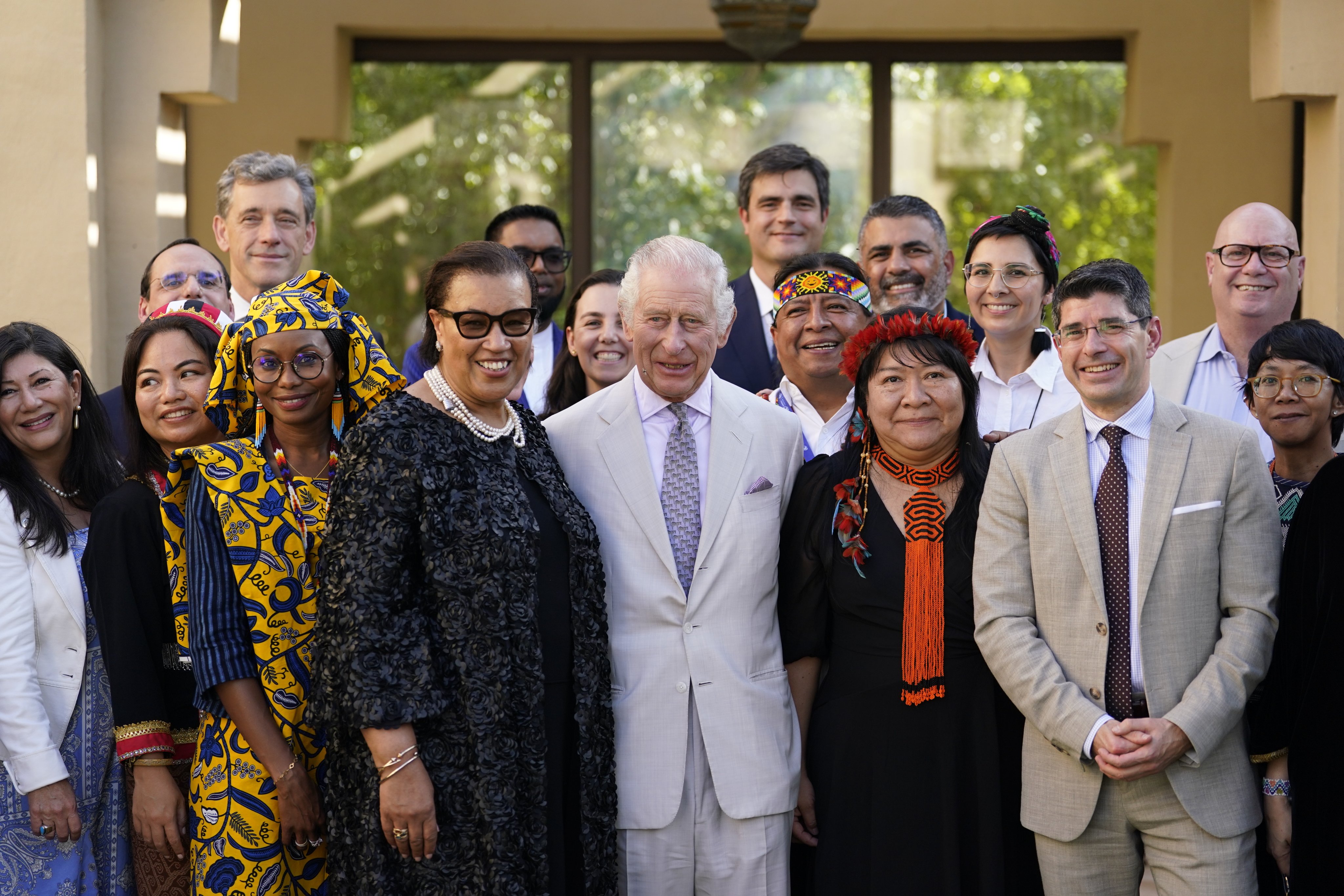The Wildfire-Resilient Landscapes Network was launched at a reception attended by His Majesty King Charles III, on 30 November ahead of the start of COP28, in Dubai.

- New network launched at a reception attended by His Majesty King Charles III, ahead of COP28 in Dubai, UAE.
- Joint initiative between the Circular Bioeconomy Alliance and the Commonwealth Secretariat brings together indigenous and scientific knowledge on wildfires to create resilient landscapes.
- Planned initiatives include action on the ground via Living Labs, and the development of innovative financial tools with the finance industry.
Building resilient landscapes
The network brings together indigenous and scientific knowledge to develop Living Labs that demonstrate how to create resilient landscapes to deal with the increasing problem of wildfires in fire-prone areas of the world. The initiative will work with the finance industry to develop innovative financial tools (for example around emerging Nature markets) that can generate the necessary investments to support the transition to resilient landscapes.
The founding of the network was inspired by The King’s interest in linking Australia’s indigenous fire experts with Canadian experts to share best practices following Canada’s horrific fire season.

Climate change is resulting in unprecedented wildfires, as fire suppression has reached its limits. The world is witnessing escalating human casualties and serious health impacts, as well as huge economic losses, increased greenhouse gas emissions, and catastrophic loss of the natural world. This summer we witnessed extreme wildfire events, with Canada now experiencing its most severe wildfire season on record.
More than 18.5 million hectares of land has been burned (as of 2nd October) and this has resulted in emissions of more than 2.2 billion tons of CO2 eq, likely tripling the annual greenhouse emissions of Canada’s entire economy.
Wildfire prevention
Innovative financial tools are also needed to play a catalytic role. Currently, the costs related to wildfire prevention and landscape management comes from public subsidies, which is insufficient to deal with the scale of the problem faced globally.
Private-public partnerships and private finance are crucial for deploying investments at scale to harness new technologies and create a new model for designing resistant and resilient landscapes. In this context, carbon and possibly also the future biodiversity markets provide an interesting opportunity for private finance.
The savanna fire management programme across northern Australia is a good example of how indigenous knowledge can be the basis for new financial tools that generate income for Indigenous Communities, while supporting resilient landscapes through carbon markets.
The network will build upon the work of the International Savanna Fire Management Initiative, which has developed leading technologies based on traditional fire management (TFM) approaches deployed in the management of land for generations, while generating carbon credits.
The application of TFM has delivered substantial additional benefits including creating market-based jobs in remote and vulnerable communities, and improving biodiversity, food security and health.
New network
The new Network will be established under the Circular Bioeconomy Alliance together with the Commonwealth Secretariat. It will be coordinated through partnerships with the ISFMI, which will contribute unique indigenous knowledge and experience in wildfire risk management, and FIRE-RES, who will bring their scientific knowledge to bear.
The Commonwealth Secretary-General, the Rt Hon Patricia Scotland KC said:
“The Commonwealth looks forward to contributing to this timely collaboration on wildfire resilience.
Our climate work is rooted in knowledge sharing – from helping vulnerable countries unlock critical access to climate finance to climate-related capacity development and the promotion of climate-resilient and sustainable land management.”
Marc Palahí, CEO of the Circular Bioeconomy Alliance, said:
“We are honoured to host this network which will build on the success of our Living Labs and connect the dots between science, indigenous knowledge and the financial sector to enable a holistic approach to creating wildfire-resilient landscapes.
As leaders gather to agree climate action at COP28, the start of this collaborative endeavour will facilitate vital progress on the ground that works to embed resilience, while contributing to nature protection as well as climate adaptation and mitigation efforts.”
For more information, follow #CommonwealthForClimate or visit our COP28 hub.
Media contact
- Snober Abbasi Senior Communications Officer, Communications Division, Commonwealth Secretariat
- T: +442077476168 | E-mail



